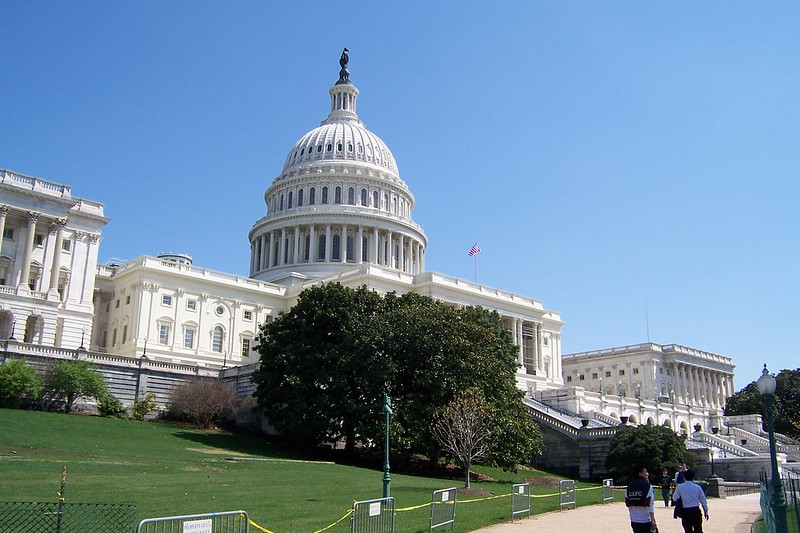
In a letter to Congressional Leadership, Republican Study Committee (RSC) Chairman Mike Johnson (LA-04) and RSC Health Care Task Force Chairman Roger Marshall (KS-01) outlined a series of free market reforms that should be enacted to help our healthcare system weather the storm of the Coronavirus pandemic.
Specifically, the RSC plan expands access to health savings accounts for American patients, bolsters America’s medical supply chain by rejecting protectionism and encouraging innovation, and builds on the Trump Administration’s successful deregulatory response to the Coronavirus.
Expanding Access to Health Savings Accounts
The RSC plan calls for temporarily suspending the requirement that health savings accounts (HSA) must be tied to a high-deductible health plan (HDHP), an idea originally proposed by Senator Ted Cruz and Congressman Ted Budd in the Pandemic Healthcare Access Act.
HSAs are tax-advantaged savings accounts that individuals can use to pay for qualified medical expenses. Since they were created in 2004, HSAs have become a popular and successful vehicle for individuals to spend and save their own money for a wide array of healthcare needs. Approximately 30 million American families and individuals use HSAs.
Currently, there is a mandate that any American wanting to open or contribute to an HSA must be on a high-deductible health plan.
The RSC’s recommendation would pause this mandate in order to help mitigate the pandemic by allowing Americans in Medicare, Affordable Care Act health plans, TRICARE, the VA, Indian Health Service and any employer plan to use HSAs. It will also help individuals pay for their deductible or any increased health care costs, allow HSA funds to pay for direct primary care, and allow telemedicine below the deductible.
Suspending the HSA HDHP mandate will help strengthen public health and ensure Americans have access to the care they need at a time of self-quarantining and social distancing to mitigate the spread of the disease.
[See also: Coalition Supports Senator Cruz’s Pandemic Healthcare Access Act]
Supporting the Medical Supply Chain by Rejecting Protectionism
The RSC approach takes several steps to protect our medical supply chain by rejecting protectionism and safeguarding against foreign freeloading.
The plan recommends the appointment of a Pharmaceutical Chief Negotiator at the United States Trade Representative (USTR). This official would act as a watchdog against protectionist measures that could disrupt supply chains or freeload on American medical innovative investments. The negotiator would have enforcement authority to take action against foreign governments that devalue and impose price controls on American innovation.
Instead of forcibly localizing supply chains in the United States with a distortionary government mandate, the RSC plan removes regulatory barriers to incentivize manufacturers to produce drugs, pharmaceutical devices, and medical devices in America. The plan also allows these businesses to fully and immediately expense their investments in research and development and physical capital.
Ultimately, these approaches safeguard the medical supply chain from protectionism and encourage American innovation.
Continue the Trump Administration’s Deregulatory Success
Deregulation has been central to the Trump Administration’s COVID-19 response. All told, dozens of federal rules and regulations have been waived, and over 300 have been waived when state and local rules are included (A full list can be found at www.atr.org/rules)
In the healthcare space, President Trump and administration officials have taken steps to give patients and providers much-needed flexibility during the Coronavirus pandemic.
For instance, the administration has expanded telehealth services. Telehealth services are now covered for Medicare beneficiaries, meaning that at-risk seniors can receive care from their doctor through video conferencing and telephone at no additional cost. Allowing Medicare beneficiaries to receive a wide range of services via telemedicine reduces their risk of exposure to the disease and allows providers to focus on the most critical patients during this health crisis.
The administration has also taken steps to allow physicians and other medical personnel to operate across state lines in order to ensure that those who need care are able to receive it, no matter where they live.
The RSC plan builds on this deregulatory success by recommending:
- Suspending the ban on new physician-owned hospitals (POHs) to expand capacity to deal with the rapid rise in demand for hospital services.
- Encourage states to suspend certificate of need laws that limit the ability of hospitals to expand capacity.
- Direct the FAA to relax federal restrictions on drones that deliver medical supplies.
- Build on the CARES Act and other deregulatory actions to further expand access to telemedicine and encourage licensing reciprocity to allow providers to practice telemedicine across state lines.
Taken together, the RSC healthcare recommendations will put patients first, give providers important flexibility in dealing with the crisis, and put the United States at the forefront of developing a COVID-19 cure.

